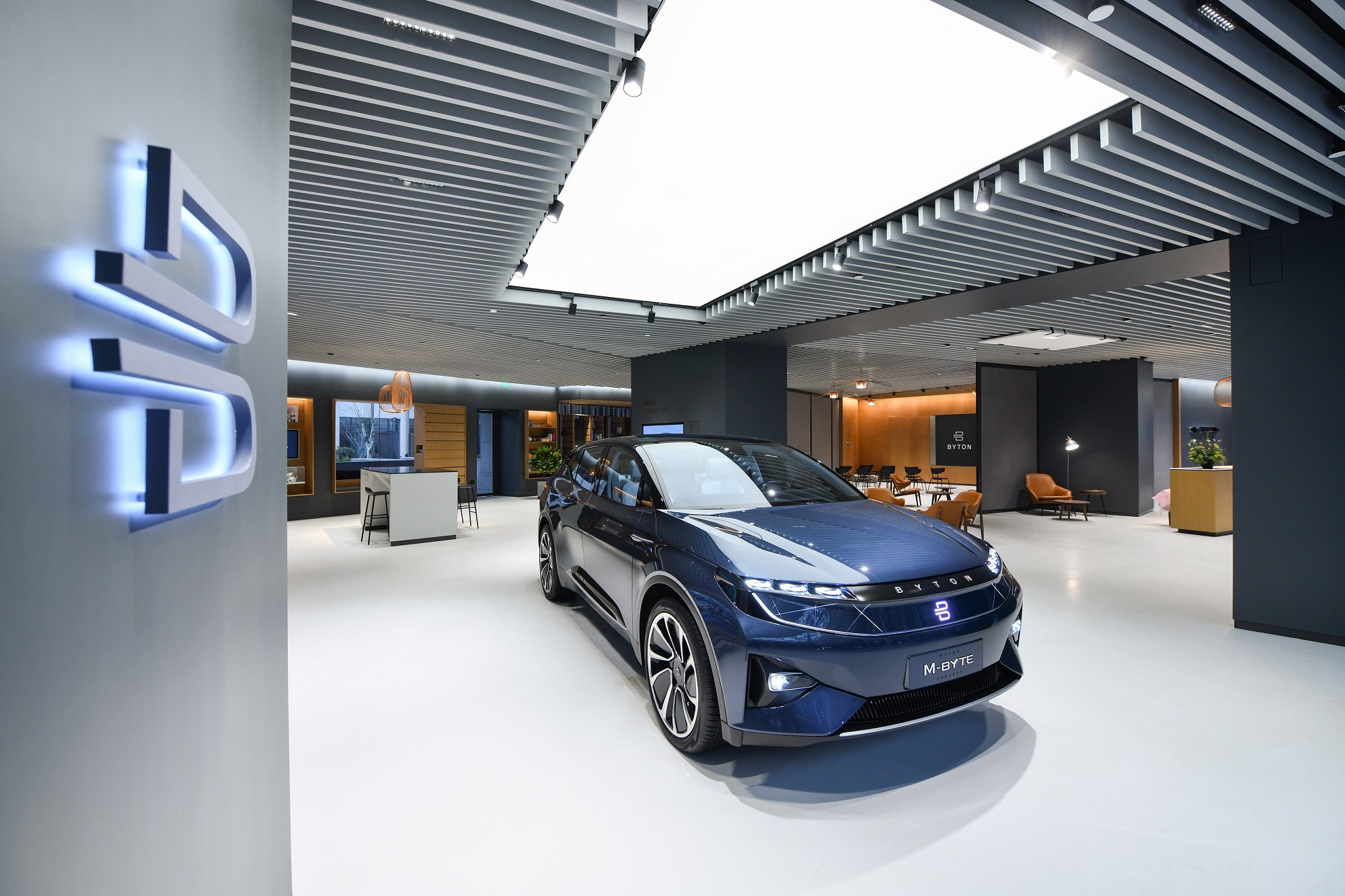Buying electric vans assembled in China will help SBS Holdings, a Japanese logistics company, lower its operating costs by 30%, the company has found in a trial run.
The total cost of buying and operating an inexpensive electric van for its logistics business over five years is 30% lower than that of a gasoline-powered vehicle, SBS calculates.
A no-frills electric van that can travel about 200 kilometers on a charge is as efficient as a gasoline-powered vehicle in terms of operational efficiency, but offers significant cost savings, according to the company.
Since last autumn, SBS has been testing a small electric van manufactured in China to evaluate its suitability for “last-mile” deliveries, the final step in a product’s journey from the warehouse shelf to the customer’s doorstep.
In the trial, the vehicle was driven around Tokyo carrying 500 kilograms of water while stopping and starting 70 times a day. The vehicle was tested in various challenging conditions, including driving uphill while running the air conditioner.
The results of the trial clearly showed the van is fit for use in Japan. The average range per charge was about 200 km, less than the claimed figure of 300 km, but enough for a full day of operations involving the delivery of more than 100 parcels on a single charge.
The vehicle can start, accelerate and decelerate on a slope smoothly and quietly, which means less stress for the driver. “We have found no problems using it for delivery services,” said SBS President Masahiko Kamata.
The JPY 3.8 million (USD 28,170) vehicle has proved cost-efficient as well. The total cost of purchasing and operating it over five years, including maintenance and charging costs, is around 30% lower than the cost of a gasoline-powered vehicle, according to the company.
The biggest challenge for EVs in the transport business is the need for a larger battery and longer operating range. Big batteries are expensive and reduce load capacity.
To overcome this obstacle, SBS received crucial technological support from Folofly, a Kyoto-based commercial electric vehicle startup. To keep the vehicle’s price down, Folofly used a lithium-iron-phosphate (LFP) battery—an older, cheaper, and safer battery technology than the lithium-ion batteries that EVs typically use. Lithium-ion batteries are lighter, but contain expensive cobalt and nickel. On the other hand, iron-based batteries cost less, do not require scarce raw materials, are less likely to catch fire, and are widely expected to power an increasing number of low-end EVs.
The main disadvantage of LFP batteries is their lower energy density, which translates to shorter range.
But Folofly has technology that enabled it to achieve sufficient range for its partner. The technology, which precisely controls the supply of electric current from the battery to the motor, was first developed for electric sports cars.
Hiroyasu Koma, Folofly’s president, had previously set up another EV maker that created Japan’s first electric sports car. Koma developed the technology to efficiently power the high-performance electric motors used in electric sports cars with a relatively small amount of electricity. This current-control technology was used in the electric van tested by SBS.
The van is based on a gasoline-engine model made and sold in China. Some features have been added to meet strict Japanese safety standards, including an anti-lock braking system. But the changes were kept at a minimum to lower development costs.
Production was outsourced to a Chinese manufacturer to keep the price of the vehicle below JPY 4 million. It would have cost at least JPY 10 million if it had been developed and manufactured in Japan, according to Folofly.
To shave costs, some features that are common to cars in Japan were left out. There is, for instance, no “park” setting on the gear shifter because the vehicle does not have a parking brake.
The charging plug is of European design and the air conditioner does not have a thermostat, only a cooling or heating mode, although it does have a fan to control the wind speed.
There are concerns that Japanese drivers may not like the fact that these features are missing. SBS has demanded that a parking mode be added and changes made to the charging plug. However, it has decided not to make any changes to the air conditioning system to save money. With a thermostat, the typical air conditioner automatically adjusts air volume. This often leads to excessive cooling or heating, reducing an EV’s range.
“Logistics services companies are under growing pressure to reduce their carbon footprint. We need to respond to that call,” Kamata said.
The results of the trial run have convinced SBS to begin replacing its fleet of gasoline-powered vans. Starting in September, the company will buy several dozen electric vans from Folofly every month under a plan to convert its entire fleet of more than 10,000 vehicles, including those used by partner companies.
SBS will become the first Japanese logistics company to introduce such a large number of electric vehicles for cargo deliveries.
But Folofly lacks experience providing maintenance and repair services, including dealing with large-scale recalls. The startup is looking to work with a company that operates a large vehicle maintenance service. The ability to offer efficient and reliable after-sales service will be as important as improving vehicle performance to expand the use of commercial EVs in Japan.
This article first appeared on Nikkei Asia. It has been republished here as part of 36Kr’s ongoing partnership with Nikkei.

